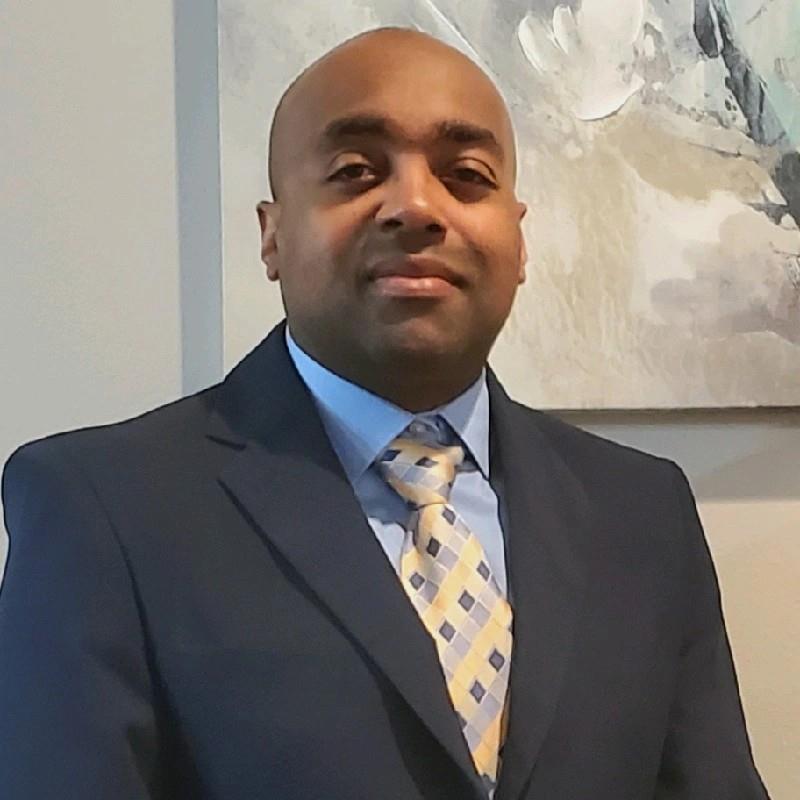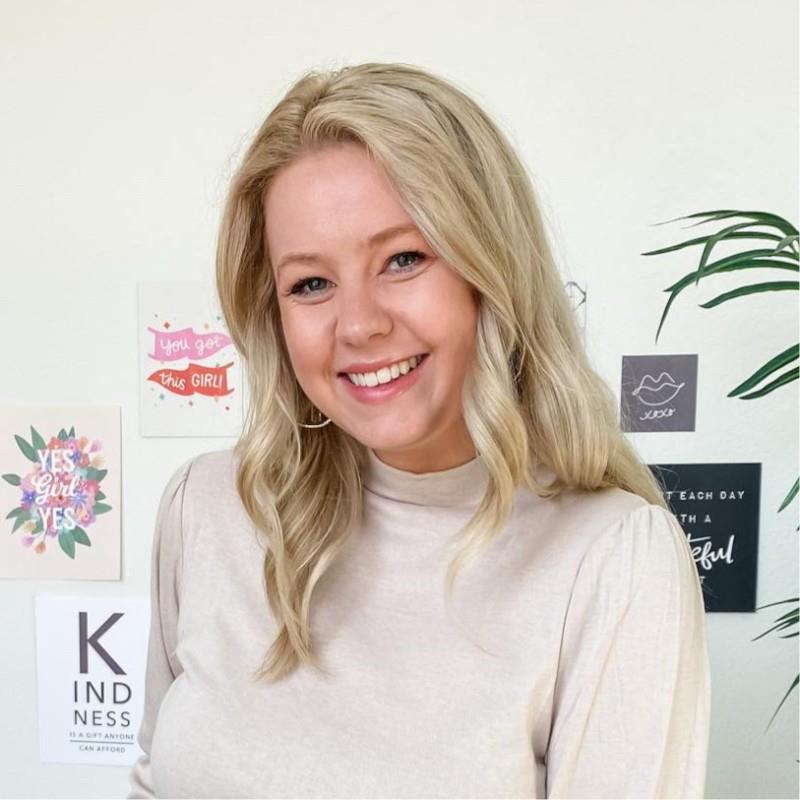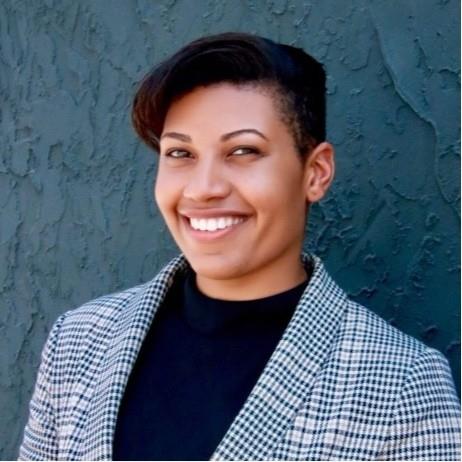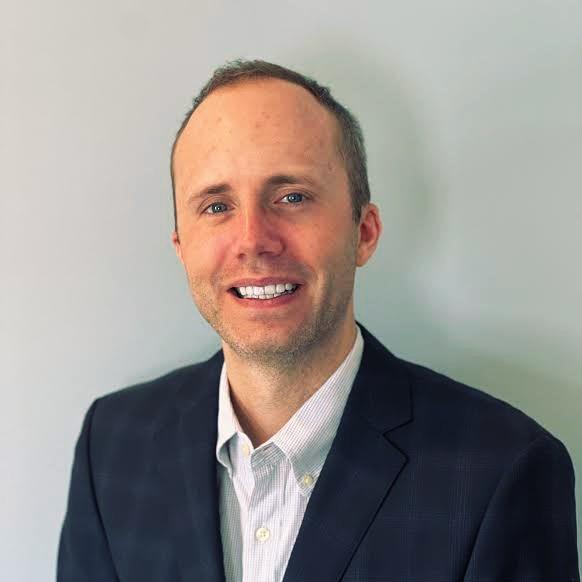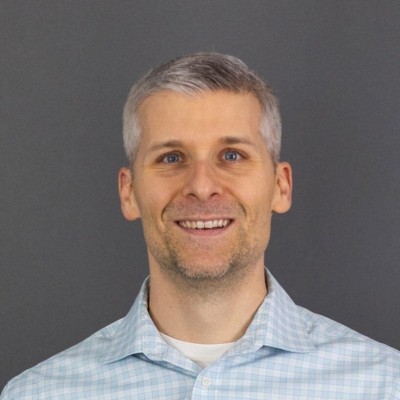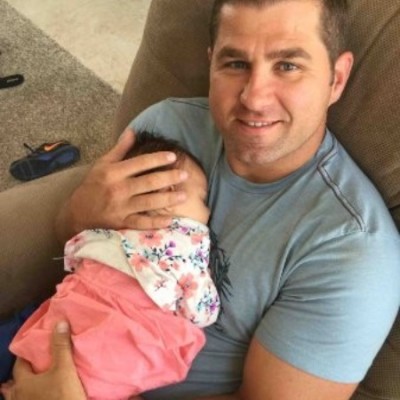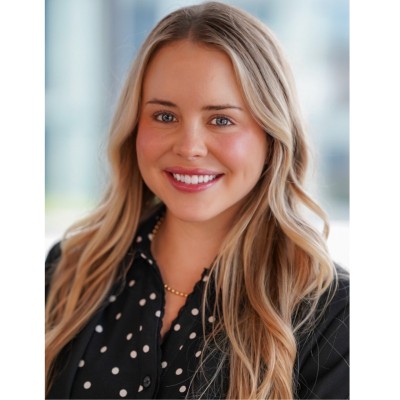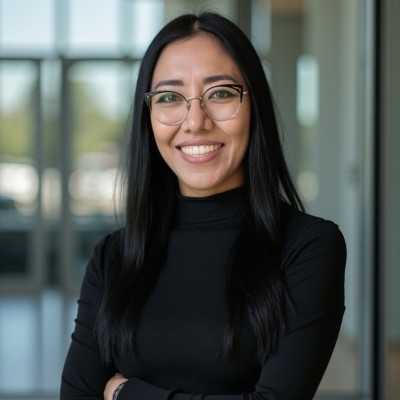By working smarter, owning your value, and confidently communicating your strengths, you can pave the way for a successful career in medical sales. In this episode, Samuel Adeyinka interviews Keila Resto, who shares her inspiring journey of breaking into the world of electrophysiology med device sales. Keila discusses the unique challenges faced by aspiring professionals in this field and highlights the rigorous nature of the interview process. Throughout the conversation, Keila reflects on her personal growth, overcoming imposter syndrome, and learning to confidently articulate her value and accomplishments. Keila also stresses the significance of owning one’s value, expressing authenticity during interviews, and leveraging a diverse healthcare background to present oneself as a valuable asset to potential employers. Finally, diving into the essentials of pursuing a career in electrophysiology med device sales, Keila highlights the need for a genuine curiosity to understand complex information and adaptability in this dynamic field. She underscores the importance of emotional intelligence and effective communication skills when collaborating with an entire staff and interfacing with electrophysiology physicians. Join us and discover how to work smarter, own your value, and unleash your potential in the exciting field of medical sales!
The CE experience for this Podcast is powered by CMEfy – click here to reflect and earn credits: https://earnc.me/AaZxIO
—
Watch the episode here
Listen to the podcast here
Breaking Into Electrophysiology Med Device Sales With Keila Resto
I have a treat. I’m going to share the story and have the interview with one of our students, Keila Resto. This is a fantastic story to share. She was a professional in a lab setting. She was a lab manager that wanted to get into medical sales. I’m not even going to try to do it any justice because I can’t. The story is good. It needs to come from her.
Make sure you are tuned in because if you want to get into medical sales, if you have been in a position anywhere near hers, or sounds like what you are about to read, take note because the results that she was able to experience can be the results that you can too. If you want to get into medical sales, this is an episode you have to read. I’m not going to say anymore. Without further ado, thank you for reading. I hope you enjoy this interview.
—
Keila, how are we doing?
I’m doing great, Samuel. How are you doing?
I’m fantastic. No complaints. Talk to us about the role. What is your specific role? What do you do on a daily basis?
We help the electrophysiologist and the entire EP staff, from start to finish, perform cardiac ablations to treat different cardiac arrhythmias.
Let’s explain to the audience what the role of electrophysiologists is. Where do they fit in medicine?
Electrophysiologists are highly specialized cardiologists. By specializing in electrophysiology, they are specializing in all of the electrical networks of the heart. They treat people with arrhythmias either with drugs or with minimally invasive procedures like cardiac ablations.
I’m excited to have you here talking about this because you are one of the graduates of the Medical Sales Career Builder Program. To be in this role and get it through our program is an amazing thing. Let’s get a little more into what you do. Are you responsible for selling? Are you brought in after they are already sold onto the products? Talk to us a little bit about where you fit.
This role is interesting because it is a blend of both. You have the capital side of it, which is the entire software component, like getting the CARTO 3 system into the lab. You have all of the smaller components, like the disposables and consumables, which are the catheters that are used on a daily basis.
The role of the clinical account specialist going for it, I will call CAS, is to make sure that the case has happened because what is special to this role is that a case cannot happen without a CAS co-piloting the procedure from our workstation. We are involved in not necessarily acquiring the new account, which is more high level, but maintaining the ongoing relationship and building that level of trust with the physicians and purchasing groups. They can try out our new products or service agreements. Our job is to keep it flowing and introduce new technology.
You are more on the utilization side of things. You mentioned workstation. What do you mean by that?
Our workstation is comprised of our computer and the patient interface unit, which is the unit that connects all the cables to the catheters and a radio frequency generator. All of those things interface together and come together on our CARTO 3 software from our workstation and allow us to create a 3D electro-anatomical map. By electro-anatomical, I mean anatomical, meaning the actual anatomy of the chamber the doctor is in, but it is being built by reading electrograms.
Where are you when this is happening?
Depending on the lab setup, we are either in the EP lab or the control room, which is outside of the EP lab behind glass and windows.
I want to know, when you wanted this position, how does it compare to what you thought it would be to what it is?
It almost sounds cliché or naïve. When I started this hunt, and I decided medical device out of all a million categories, I came across this position. They ticked everything I was hoping for when thinking, “What do I do next?” Now it is even more because I wanted something hands-on as possible. I could not have asked for something more hands-on. It is like a video game on steroids. I’m creating this map and seeing it come to life. I’m guiding the doctor with his catheters while he is manipulating them and advising on where to make lesions. It is extremely rewarding from start to finish.
There is a little bit of patient interaction. When the patient comes, they are conscious. We are not allowed to administer any treatment, but we have to look for a place like our location patches that are part of our system. We get to say hi and have a little banter here and there. I love that because it marries my passion for healthcare, but my geeky side of technology has elevated that. It is everything I could have hoped for.
You are a graduate of the Medical Sales Career Builder Program. How did you find us? Everybody here needs to read the journey of how you found us, went through our program, and got into this position you are now. Talk to us a little bit about that. How do you find us?
I worked in internal medicine while I managed the lab in internal medicine. We had pharma reps come through. I started getting curious as to what they did. I met a woman that worked for Janssen, which is the pharma company of Johnson & Johnson. She told me about her world. I was like, “I don’t know if that is what I would like to do.” She was like, “Johnson & Johnson has a million other techie things you can look into, and they would be right up your alley.”
I was like, “Alright.” In our conversations, she would mention med devices. She would be like, “It is different from a med device.” She would never go into detail. I was like, “There is a med device. What is that?” I was like, “Google, what is a med device?” I started reading. I went on Spotify and started typing med device. Here comes your nice blue icon white shirt. I was like, “It is called a Medical Sales Podcast. That is what I’m looking for. What is this?” Hours into your episodes, I was like, “This is cool.”
That is how I found your show. I listened to all of these awesome stories of people that didn’t come from sales or people that had all these different ways in. It took a few episodes, and there is that, like, “If you like what you heard and you are curious.” I’m like, “I am. I need to know.” My Janssen rep friend told me, “I will tell you one thing. No matter how much you prepare, it is hard to get into. Some people take a couple of years. I didn’t get in at first.” I thought maybe she was exaggerating. I was listening to all of these episodes. I’m like, “This is tough to get into. How can I best prepare myself? I’m not about to waste all this time getting rejected.” I hit you guys up.
If you can capture it in a nutshell, what is it that you got out of this program that got you into this opportunity? I remember you telling me that this is a bit of an exclusive opportunity, and the people that you normally work with don’t necessarily have your background. Talk to us a little bit about that.
A lot of the people in this position, some of the more sales and contractual positions, come from sales backgrounds. The clinical specialist role usually comes from people recruited and have biomedical engineering backgrounds or came from electrophysiology and decided to transition into instead the clinical side, the manufacturer side, or went through the ATI program.
One of the things we learned in your program is to use LinkedIn. I had not touched LinkedIn since this professional development class I had in my sophomore year of college. I was like, “I dust this off. What is this?” Your program taught us how to search. I was searching for these people. Out of the people I saw was like, “I got this job come.” They come from way different backgrounds. I was like, “What can I do to prove I can do it? I can learn this. I know I can. I know this is where I want to be.”
What your program did beautifully is it helped me gather my thoughts and take a step back at my career up until that point. I learned how to package and present it in a way that was useful and transferable. I would be like, “I worked in a lab. How do I say I did do these things?” You helped me bring that assurance and confidence out to express why I knew I would be good for the roles I was going after.
This episode serves two purposes. 1) Puts on notice your field, your specialty, that is so dynamic, nuanced, and demanding. You were able to deliver in this space, not having the exact background as your counterparts you are working with. 2) It is to showcase how this program can get you there. If you were to share with someone thinking about stepping into medical sales and doing this program, talk to us a little bit about what you would share with them, why they should consider it, and what it might do.
I’m a big proponent of work smarter, not harder, whenever possible because this is a long journey. It can be long. It is demanding. Interviewing for these roles is unlike any other role I have ever gone after, and I come from management. At the management level, it has never been this rigorous. If someone wants to know, like, “What do I need to do?” You don’t give us the answers, but you give us all the tools. If you want to know, like, “How do I assess my background? How do I comb through it, and this job is asking for this, but I never did that?” You give us this program and tools.
Because it doesn’t say it verbatim the way it is listed, it doesn’t mean you don’t have experience doing that thing. It is doing it but in a different environment. For example, I don’t have selling experience, but I was in charge of vaccines. You told me, “Keila, when you convince patients of the benefit of the vaccine, you sold.” I’m like, “That is true because that is a sale.”
I knew I had a decent career history at various jobs in healthcare. Without being emotional, imposter syndrome was always a big thing for me, especially for people that might not suffer but struggle with that. They were like, “Yes, I did this, but it is not like that. I could never do that.” This program and your coaches helped. It took some extra hammering with me, but it helped to be like, “Keila, yes, you did do this. It is right there.” I’m like, “That is the same. No, they are not going to.” They would be like, “Stop, Keila. Cool it.”
I learned how to own my value and own what I bring. I come from a different background. This isn’t my first job out of college. I’m not a biomedical engineer but I come from different background in healthcare, which served to my benefit. Being able to draw from those experiences made me valuable. It doesn’t matter what jobs you have had. Whether they are related or not, this program helps you to dig deep, assess and find all the little hidden gems you have and be able to present them in a treasure chest, like, “This is why you want me.”

The confidence in expressing yourself. I’m sure people can relate to this. I always thought that speaking of things you did well in your jobs was being arrogant or braggy. You are like, “No one cares.” For many other things I do, I would be like, “Yes, but that was little. That was nothing.” Your coaches in the program helped me be to be like, “No, this is an accomplishment.” I should not feel bragging when I tell somebody, “No, this is my proudest moment because this is what I did. This is what came from it. It was awesome because I had this result.” It is okay to be proud of those things.
I have interviewed for countless jobs, but I always get nervous. Even throughout the process, I was still sweating. From here up, I was like, “Hello.” I’m learning this program isn’t a cheat code. Answers are not canned, rehearsed, or staged. That is what I loved about the program because I was like, “I don’t want to sound like a robot because I want this role.” When I would sound robotic, you guys would be like, “Sound genuine. Be yourself.” I would be like, “I get silly sometimes, and I’m weird.” You are like, “Be weird but know how to communicate while showing your weird mannerisms.” I’m like, “Okay.”
Coming from this program, especially with my background. It wasn’t about talking about what I have done, but it was more talking about, “Why what I have done has made and prepared me to go after this role, and why this would benefit me?” Being able to package that nicely in a way that they are like, “Yes, it is an interesting background, and you are prepared.”
There are things with going after that device that no one tells you. No matter how many jobs or interviews you had, there are all the little nuances, like, “How was I supposed to know that?” It is best if you have connected with people that work in the industry, even if they are not local to the team you are applying for little things like that. You have gone out of your way to learn more about the company and beyond what is on your company website.

Little things like that and those searching tools because, thanks to your program, I became an A-class LinkedIn stalker. It is what helped me with all of the positions that I was interviewing for at the time before I accepted my offer. It was all because I stalked people on LinkedIn. I was like, “Talk to me.”
That is what allowed me to get in front of people. Coming from a nuanced area, like working in EP, it is not broadly broadcasted. From the people I have met along the way there, they all knew somebody already working for J&J and got in that way, or it worked in EP but coming from completely left field. They were like, “Through LinkedIn.” I’m like, “Yes.”
I love that you bring that up because one thing that we champion is we teach you how to do things effectively. We teach you how to utilize these resources in the most powerful way possible that gets you into opportunities you wouldn’t have experienced otherwise. I want to ask and share this with the audience because I’m sure everyone is wondering, what do you think this would’ve looked like if the program wasn’t there? Do you think you would have been able to get this opportunity?
No way, at least in this role in particular, because I did do to be proactive while I was in the program. I was like, “Let me submit my little application on their website.” While trying to connect to people, it sat there, not even a rejection. I would have still been sitting there. One of the people I connected with was kind because he had started the training program. I asked him, “Your experience because I applied. I sent my application.” He was like, “It is not going to move. Mine was sitting on there for five months.” He had a friend that worked. He got introduced and got the ball rolling.
That reinforces what this program tells you. You need to utilize LinkedIn and weaponize it. Make it your secret weapon to get in front of what you need to do to get there. It was like that at the other two companies I was interviewing at. I applied to their sites. The moment I kept talking to people until, finally, I got into a conversation with somebody that would initiate the interview process.
[bctt tweet=”Utilize LinkedIn and just weaponize it. Make it your secret weapon to get in front of like what you need to get there.” via=”no”]
We give you all the deliverables. You are packaged the right way. We teach you how to have those conversations. We show you how to get to the right people to conduct those conversations, show them your deliverables, get into the interview process, and blow them away in the interview process. One thing I like to say is that we sell confidence. You come to the program. It is either you are getting interviews, and you are not landing them, you are not getting any interviews, or you have no idea where to start. After our program, you are like, “I know where I’m going, what I’m going to do, and how I’m going to get there.”
Keila, it is wonderful to have you on this episode. You are still in the program. You still come by and hang out with these students. It is wonderful for you to come by because you always inspire the people that were one time in your shoes. If there is anything else you like to share with the audience, please share.
I’m a big proponent of making the right investment and being smart with your investment. In life, to move ahead, you have to invest something. Whether it is time or monetary, you are making an investment. Working smarter, not harder. We are adults. We are busy. Make that investment to grow professionally because aside from getting this role, I grew as a person. This was an investment, personally. I was shy to communicate my strengths because I thought of them as bragging, and it is not that.
If you are going to invest in having someone to write your resume, which is pricey, why not make a more robust investment like holistic? It is not like, “Here is your data and resume. I have no idea who you are. Good luck finding a job.” It is more like an investment, but at the same time, the return is you get coaching, and you learn to discover things about yourself along the way. That will serve you professionally later on. These skills of being able to communicate effectively or knowing how to communicate are essential.
[bctt tweet=”If you’re going to invest in having someone write your resume, which is pricey, why not make a more robust investment that’s holistic?” via=”no”]
If you have the time to waste, sit around and have those resumes floating in Lala land on talent websites, that is fine. If you are an adult and you got bills to pay, you want to make sure, like, “How can I be best prepared to do what I need to do for that next step or elevate my life to the next level?” This program was everything that I needed to do that.
Keila, it was awesome having you on the show. Do you have a family, Keila? How is your life set up?
I have a husband, and I have a four-legged son. His name is Pilot.
How old?
He is an old man.
That is a mature adult but not an old man quite yet.
It is funny because, in dog years, I’m like, “You are older than both of us, but we treat you like a baby.”
What type of dog is Pilot?
He is a Shih Tzu.
Are those the noisy ones or the quiet cute ones? Remind me.
They are supposed to be quiet and cute, but mine is more grumpy and cute. He has this resting grumpy face, but he looks like an Ewok. It is adorable.
With this career path you are in, would you say that the work-life balance is there? Would you say that you have had to adjust as far as that is concerned?
It has been an adjustment, but it is taking all my dream job options. There is always some sacrifice you have to make if you want to move forward. Overall, this path in EP is nice because it is elective. There is no on-call, which is great. One of the things is it was not sustainable for me. Training is brutal. There is not much work-life balance. They are like, “No, don’t work on the weekends. Just study.” I was like, “There is no not studying. What do you mean?”
[bctt tweet=”There’s always some sacrifice that you have to make if you want to move forward.” via=”no”]
My life is consumed by modules, training, and being in the field, but as soon as that is over, there is more of a work-life balance. It is healthcare. You have to be okay with schedules being changed, cases being added on or canceled, and be like, “I drove all the way here for nothing.” It has a good work-life balance for the reward you get.
The last thing I will ask, for those that are reading, they are saying, “This field that Keila’s in, I’m curious.” Maybe they are reading, and they are saying, “I have a similar background to Keila. I need to explore this.” What would you say are the top three things that a person should check themselves that they have to be able to perform or do this role?
It is going to be a huge learning curve. Every job is going to say that, but in my experience, electrophysiology is complicated. You have to be willing to learn something completely new and be curious about it because it can be overwhelming. You will know. If this position is cut out for you, and when you start studying and looking into the equipment, you are like, “My brain hurts. I don’t think I want to do this.” Maybe you should look somewhere else.

If you are looking at this technology and it is like, “I don’t know what I’m looking at, but it looks interesting, and I want to learn more,” hours later, I would be like, “What?” I have never studied as much as I have studied for the job I did here. For interviews, they would be like, “What do you know about EP?” I’m like, “Catheters, or AFib.” Everyone knows it is all their own little world. I was being able to demonstrate that you have already studied things. You don’t have to be an expert by no means, but if you are like, “I don’t know anything.” It is not a good fit because this will make you work.
You have to have the interest and mindset to handle the complex information. Give us two more.
You have to be okay with variability and have a good sense of emotional intelligence or be able to recognize and regulate emotions because, during the whole procedure, you are interfacing with an entire staff with EP docs. It is being able to engage, mold to situations, and not lose your cool. It is being willing to learn something, spending time learning, and being interested in it.
It is being okay with variability, schedules changing, emotional intelligence and understanding how to communicate, noticing other people’s emotions and behaviors, and learning how to be a chameleon in the room because you are not a fly on the wall in these cases. You are 100% on from the moment the patient gets to the moment the patient is woken up out of anesthesia.

Keila, thank you for sharing with us. We are going to switch gears a little bit. Are you ready for the lightning round? You have ten seconds to answer these questions. I’m going to ask you four questions. First question. What is the best book you have read in the last several months?
I haven’t had time to read in the last several months other than electrophysiology books. Start With Why book by Simon Sinek was part of your curriculum. It was one of the best books I have read for leisure if I have to expand that window to a year because it reassured things that were already like personal philosophies of mine. It is awesome.
What is the best movie or TV show you have seen in the last several months?
I did watch The Last of Us on HBO. That was a good show.
Do you recommend it?
I do. If you played the video game, it was a great adaptation to the video game.
The last best meal you have had, and it could be a restaurant with the meal, in the last several months.
I have been heading down to Fort Lauderdale for my training and when I was in the field. At this place called Moon Thai, they have the best sushi rolls. Their presentation, flavors, and textures are perfect.
Any particular sushi roll to get?
I can’t remember what it is called, but it was good. It was like shrimp tempura. I have never had a sushi roll that has little slivers, like mango slices, on it. I thought that was going to be weird, but it was delicious. It was spicy mayo, tobiko, and mango. It was good.
The last question is, what is the best experience you have had in the last several months?
It is landing my dream job. It has been the best experience.
Keila, we can’t wait to see the amazing things you do in this space. We are glad that you did acquire your dream job and you did it through our program. Thank you for being on the show.
Thank you, Samuel.
—
That was Keila Resto. What I loved about her story is how she discovered a nuanced space. She saw that she had the wherewithal to figure out how to make that nuanced space work for her and provide value within that nuanced space. She utilized our program to become someone qualified to be in that space, showcase her skillset, get the position, dive into something she loves, and live her life out in her dream job. That is awesome. It’s a beautiful thing to read and a wonderful thing to consider for ourselves.
I loved her story. Could that be me? Maybe I’m next. Whether you are out there and have been contemplating medical sales, not knowing where to start but wanting to get in, or whether you are out there and you have been applying day in, day out, and applying and nothing, you are someone that has been getting interviews, and for whatever reason, you can’t seem to grasp, and you are not able to close them, if this is you, it is time to stop wondering, pondering, and thinking.
It is time to start acting. Take action. Visit EvolveYourSuccess.com and get in touch with a team that can work to get you where you want to go and give you all the confidence to show up as you have never shown up before and get these positions. If you are reading this blog, please feel free to leave us a review. Let us know how you feel about what you read. We are going to take the best reviews. We are going to be broadcasting it.
As long as you are reading, you will know who you are. Whether it be Apple or Spotify, leave a review. We will get wind of it. We will start talking about them on the show. As always, we do our best to bring you guests that are doing things, wonderful things in the medical sales space and that are getting traction to get into and get into the medical sales space. Make sure you tune in for another episode.
Important Links
- Keila Resto
- Start With Why
- Apple – Medical Sales Podcast
- Spotify – Medical Sales Podcast
About Keila Resto
 My curiosity for healthcare started while staring into the mirror at four years old, in awe, at how small “medical strings” could hold together the gaping gash on my forehead. It was not until I was diagnosed with Type 1 Diabetes at 17, that this curiosity would be cemented and become the impetus that led me to obtain a BS in Biology.
My curiosity for healthcare started while staring into the mirror at four years old, in awe, at how small “medical strings” could hold together the gaping gash on my forehead. It was not until I was diagnosed with Type 1 Diabetes at 17, that this curiosity would be cemented and become the impetus that led me to obtain a BS in Biology.
Consequently, I became the first person in my family to graduate from college where I attained a degree in Cell and Molecular Biology. I have been fortunate to have worked in various jobs in healthcare. I have been a patient advocate, medical interpreter, medical assistant, and lab technician. And most recently, I had the opportunity to merge my clinical skills with my degree and technical skills to manage a clinical laboratory where I utilize capital equipment to analyze patient samples.
I am now determined to fuse my experiences in science, patient care, and technology to create a greater impact in patient outcomes in the Medical Sales space.
Love the show? Subscribe, rate, review, and share!
Join the Medical Sales Podcast Community today:
